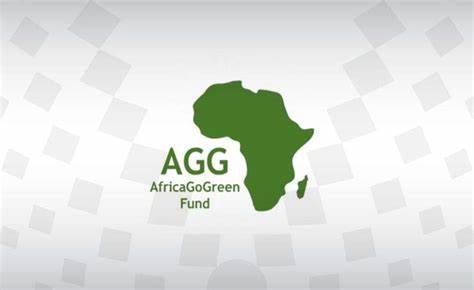AfricaGoGreen Fund to Expand Clean Energy and Climate-friendly Projects in Africa after Funding

In its second fundraising effort, the AfricaGoGreen Fund raised $47 million to support climate-friendly projects on the continent. The finance was provided jointly by prestigious financial institutions such as the International Finance Corporation (IFC), the African Development Bank (AfDB), the Nordic Development Fund (NDF), and the Sustainable Energy Fund for Africa (SEFA).
The money raised will go toward building new green structures, upgrading existing buildings, and buying high-efficiency appliances and business equipment. Additionally, it would provide funding for the installation of rooftop solar panels and battery storage for use by households, businesses, and industrial customers.
IFC gave the fund $30 million in financing in addition to $17 million in equity. Equity investments of $10 million were made by the Sustainable Energy Fund for Africa, the Nordic Development Fund, and the African Development Bank. Calvert Impact Capital contributed the final $10 million of the debt in December 2022.
The first structured debt fund in Africa with an emphasis on energy efficiency is called the AfricaGoGreen Fund. It is being managed by LHGP Asset Management and seeks to attain a final close between $230 million and $250 million. The fund has raised $138 million in total in the current fundraising round, showing that it is close to reaching its maximum magnitude.
In order to speed up access to clean cooking options for millions of Africans, AGGF has awarded funding to BBOXX and AktivCo, two providers of pay-as-you-go solar-powered solutions. The Solarise transaction, which invested in energy-efficient equipment in Kenya, South Africa, and Mauritius, was also recently completed by AGGF. The transactions for AktivCo and BBOXX were likewise larger.
Climate Financing Need in Africa
Significantly, African countries are among those that are most susceptible to the effects of climate change, and as a result, many of them require “sustainable infrastructure,” such as public transportation, water services, and clean energy. In terms of harm compared to GDP and population, the African continent is most vulnerable to climate change, according to the African Development Bank (AfDB).
It is estimated that through 2030, the cost of adaptation to climate change will range between $20 and $30 billion yearly. They can only be satisfied by varying financial systems and funding sources. The AfricaGoGreen Fund generously provides funding to meet this need.
The fund also includes a $3.3 million technical assistance facility provided by KFW on behalf of BMZ. The facility supports transaction consultancy, project development, stakeholder capacity building, and market research. While the fund plays a crucial role in the equitable energy transition in Africa, KfW division head Johannes Scholl stated his hope that other like-minded investors will join the fund.
IFC cooperated with AfricaGoGreen because of this creative emphasis, according to Henrik Elschner Pedersen, IFC’s regional industry director for manufacturing, agribusiness, and services in Africa.
Creating a Value-chain for Cleantechs
Along with other investors, the African Development Bank and the Sustainable Energy Fund for Africa are helping to decarbonize African nations and create a more climate-resilient Africa. The department’s head for renewable energy and energy efficiency, Dr. Daniel Schroth, said they were eager to have Cleantechs and private investors join them in the fight against the negative effects of climate change on the continent.
Investment opportunities in climate-related projects are abundant throughout Africa. As the industrial mix of the continent diversifies beyond extractives and other traditional industries, new value chains, such as sustainable farming and renewable energy, are emerging.
The Johannesburg Stock Exchange, which started its Green Bond Segment and Green Listing Regulations in October 2017 to encourage more green bond issuance in the region, is a good market signal. South Africa is viewed as presenting itself as a gateway to green investment in sub-Saharan Africa with this innovative strategy.
